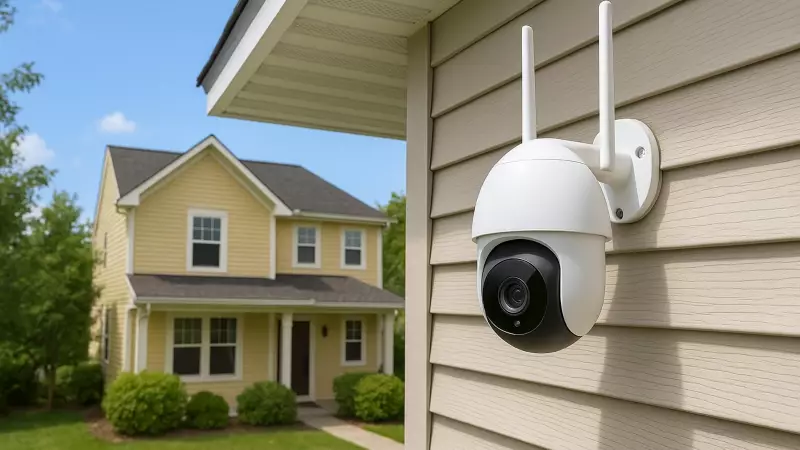
In an era where home security cameras have become ubiquitous, cybersecurity experts are sounding the alarm about installation mistakes that could land homeowners in serious legal trouble. What many consider prudent security measures might actually be violating privacy laws and creating significant legal liabilities.
The Hidden Dangers of Poor Camera Placement
According to cybersecurity professionals, the convenience of modern security technology comes with substantial responsibility. "Many homeowners install cameras without considering the legal implications," explains a leading digital security expert. "They're protecting their property but potentially invading others' privacy."
5 Camera Locations That Could Spell Trouble
1. Pointing Towards Neighbours' Properties
Installing cameras that capture your neighbours' windows, gardens, or entryways is a recipe for conflict. This violates their reasonable expectation of privacy and could lead to harassment claims or legal action under privacy protection laws.
2. Inside Rental Properties Without Consent
Landlords installing hidden cameras in rental units face severe legal consequences. Tenants have a right to privacy within their leased spaces, and covert surveillance typically violates tenancy laws across most jurisdictions.
3. Workplace Monitoring Without Disclosure
Business owners must exercise extreme caution with employee surveillance. While security concerns are valid, monitoring workplaces without proper disclosure and consent can violate labour laws and employee privacy rights.
4. Public Spaces and Sidewalks
Cameras extensively monitoring public footpaths, streets, or parks may contravene surveillance regulations. While capturing incidental public space footage is generally acceptable, systematic monitoring of public areas requires special permissions.
5. Areas With Privacy Expectations
Any location where people reasonably expect privacy—such as bathrooms, changing rooms, or guest bedrooms—is strictly off-limits for surveillance cameras, regardless of ownership.
Legal Consequences You Might Face
The ramifications of improper camera installation can be severe:
- Criminal charges for invasion of privacy or illegal surveillance
- Civil lawsuits seeking damages for privacy violations
- Data protection fines under regulations like GDPR
- Neighbour disputes that could require costly legal resolution
- Forced removal of all surveillance equipment
Smart Security Practices for Homeowners
Experts recommend these safe installation practices:
- Focus cameras exclusively on your own property boundaries
- Use privacy masking features to block neighbouring properties
- Clearly post signs indicating surveillance areas
- Consult local laws and housing society regulations
- Discuss placement with neighbours to avoid misunderstandings
- Secure camera feeds with strong passwords and encryption
As one cybersecurity professional notes, "The goal of security cameras should be protection, not intrusion. Proper placement ensures you're safeguarding your home without compromising others' rights."
Before installing your next security camera, take a moment to consider not just what you're protecting, but whose privacy you might be inadvertently violating. In the balance between security and privacy, legal compliance is non-negotiable.





